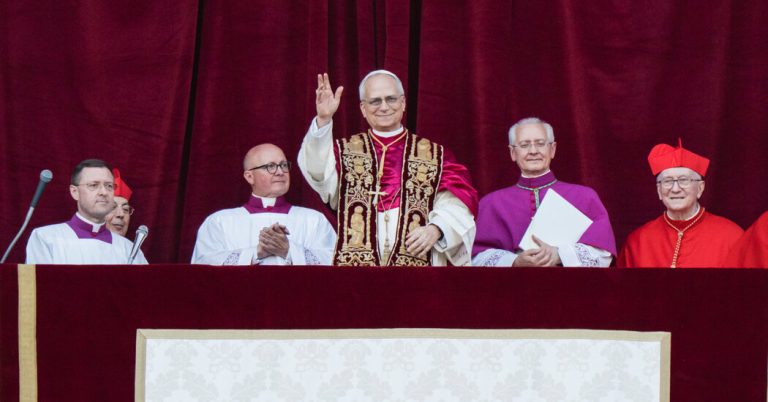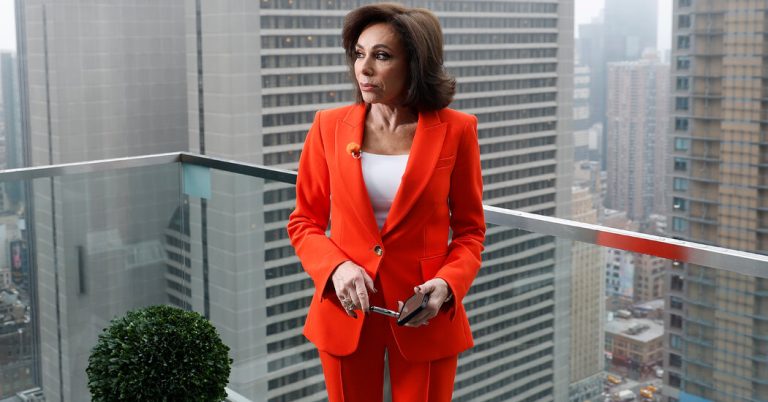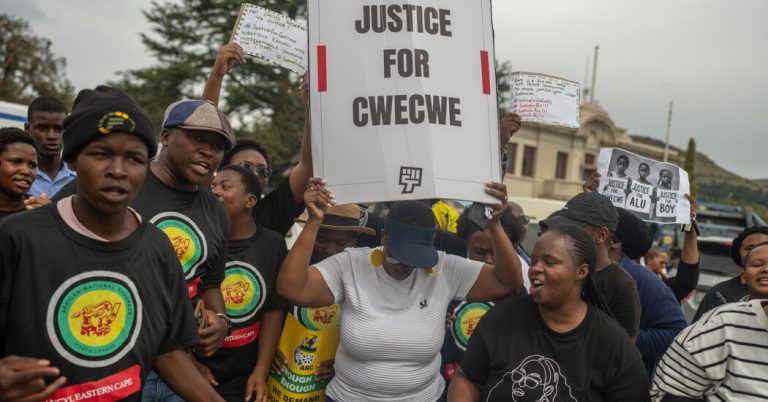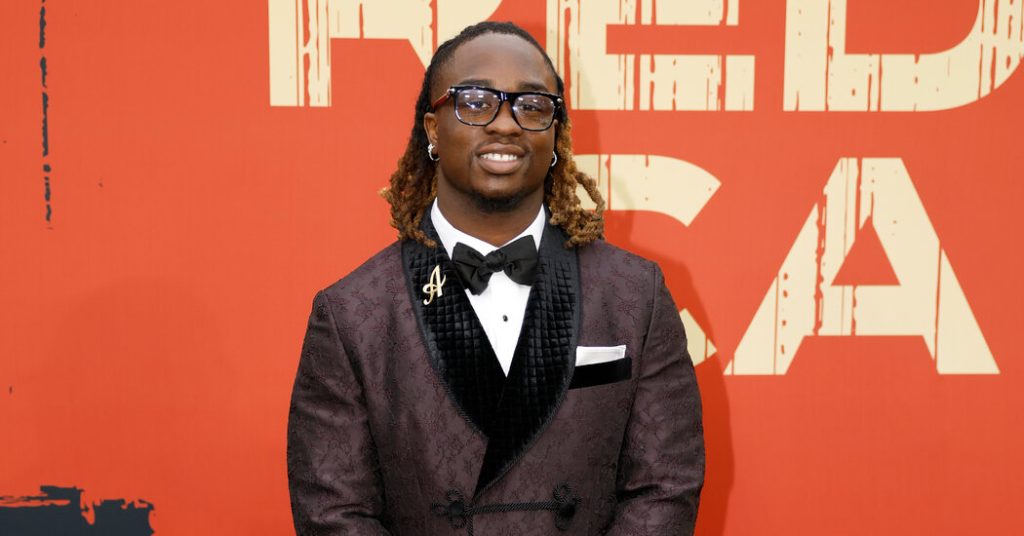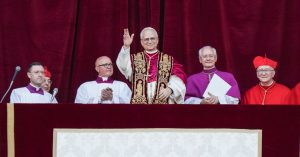PHOENIX — Celebrate?
Sure enough, history will happen in the sprawling, skillet-flat Phoenix metropolitan area on Sunday. When Kansas City’s Patrick Mahomes and Philadelphia’s Jalen Hurts take the field for the Super Bowl, it will showcase two Black starting quarterbacks for the first time in its 57-year history.
Hats off to both of them for breaking through a quarterback ceiling that Black players of the past — struggling against the racist myths that they were not smart or capable enough for the position — could only dream of doing.
But celebrate? It’s 2023, after all. The National Football League has been around for 103 years. This fresh layer of history, yet another long wait Black people have had to endure for equality, should have happened generations ago.
And it is even harder to feel great about the Hurts and Mahomes moment when the N.F.L. keeps dragging its feet in another realm.
Head coaches.
The N.F.L. is an embarrassing failure in this regard. Lovie Smith, then helming the Chicago Bears, and Tony Dungy, of the Indianapolis Colts, made their own history in 2007, becoming the first Black head coaches to square off in the Super Bowl. The safe bet then was that the moment had heralded a new day in the coaching ranks.
We know now that the revolution never really got off the ground. Every Super Bowl brings the issue back to the fore.
Once again, neither head coach in football’s ultimate game will be Black. That’s hardly a surprise. It has been a dozen years since an African American coach, Mike Tomlin of the Pittsburgh Steelers, led a team from the Super Bowl sidelines.
Dive Deeper Into Super Bowl LVII
- The God of Sod: George Toma, 94, has been a groundskeeper for all 57 Super Bowls. On Sunday, his perfectionism will be on display for millions of people who will have no idea who he is or how he suffers for his work.
- Philadelphia Swagger: After surviving a disastrous introductory news conference, an ill-chosen flower analogy and his “Beat Dallas” motivational shirt, Nick Sirianni has transformed the Eagles, and maybe himself.
- Inside a Kansas City Oasis: Big Charlie’s Saloon is a South Philadelphia bar with a bit of a conundrum: how to celebrate Kansas City’s Super Bowl berth without drawing the ire of locals.
- Halftime Show: The nearly four-year gap between Rihanna’s live performances will close when she takes the stage at the Super Bowl. During her hiatus, the stakes for her return have only grown.
Once again, we will see Eric Bieniemy, Kansas City’s stalwart offensive coordinator who has been continuously passed over for head coach positions, chirping in the ear and guiding the league’s best quarterback.
Once again, we are confronted during Super Bowl week with the league’s ugly, erratic numbers on coaches.
In 1989, Art Shell of the Raiders became the first African American head coach in the league’s modern era.
More than three decades later, in 2023, there are just three Black coaches in the 32-team league: Tomlin, Todd Bowles of the Tampa Bay Buccaneers and DeMeco Ryans of the Houston Texans. (The Miami Dolphins’ Mike McDaniel identifies as biracial.)
The Arizona Cardinals and the Indianapolis Colts have yet to fill their head coaching vacancies, but news media reports on their searches do not give much hope to anything but the status quo.
All this from a league made up predominantly of Black players, a league that leans heavily on showstopping African American culture to create its electric vibe.
And yet …
And yet we hear the same old story. Be patient, the league says. Change is coming. It will happen. We’re working on it. Trust us.
Time and again during his state of the league news conference this week, N.F.L. Commissioner Roger Goodell invoked “programs” meant to increase diversity in the league.
Nevermind that those programs are working primarily in front offices. Over the past three years, for example, five African Americans have been named team presidents, a position that normally oversees off-field operations. These positions are significant, but let’s get real, other than the most strident fans, nobody remembers the team president.
We remember the quarterback — and the coach — the positions with the deepest meaning, biggest cultural clout and broadest effect.
“I think there is progress, and we’re pleased to see progress,” Goodell said, speaking of diversity in his league, polite and politic, in keeping with his totemic role as a frontman for billionaire team owners. “But it’s never enough.”
No, it’s not.
The reality is that nothing will change until the owners decide it will change.
Predominantly white, conservative and risk-averse, they seem to lack the urgency or sense of moral imperative to alter their ways.
Yes, there’s the Rooney Rule, in place for two decades, meant to level the playing field by mandating minority candidates at least get a small share of job interviews. When it comes to the job on the marquee, the owners make a mockery of the rule. (Hence the lawsuit against the league and three teams brought by the former Miami Dolphins coach, Brian Flores, who claims a pattern of racial discrimination in leaguewide hiring practices.)
Three years ago, when the Carolina Panthers owner, David Tepper, hired a new head coach, Matt Rhule, Tepper gushed about how the two were kindred spirits and how they had both once been short-order cooks. Rhule, he said, “Sweats all over himself. He dresses like me, so I have to love the guy!”
A few dismal games into this season, and after garnering a less-than-sparking record of 11 wins and 27 losses, Rhule was fired. His interim replacement: Steve Wilks, a Black coach who quickly made a floundering team competitive and nearly guided the quarterback-challenged Panthers to the playoffs.
Wilks wanted to stay on permanently.
Who couldn’t guess what happened next?
Wilks was kicked to the curb and replaced by Frank Reich, recently fired by the Indianapolis Colts but nonetheless hailed, as so many white coaches are, as a football genius.
That’s the way of the N.F.L.
So long as it is, even during a history-making Super Bowl week, what is there to celebrate?


